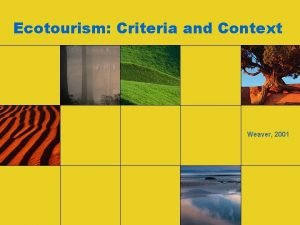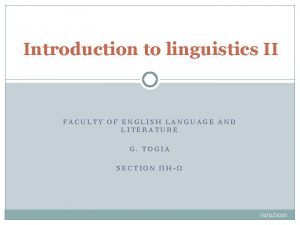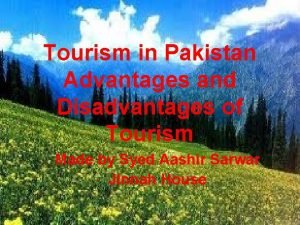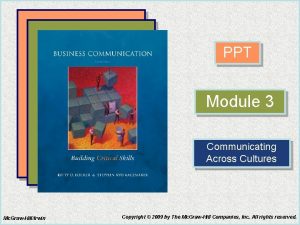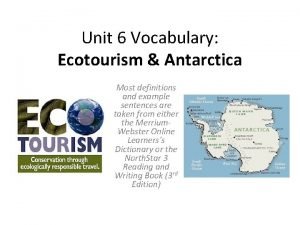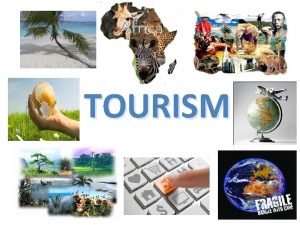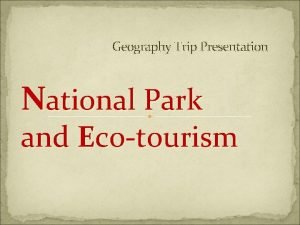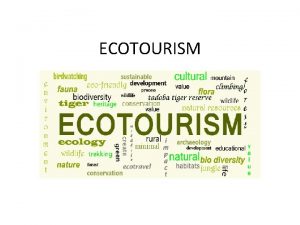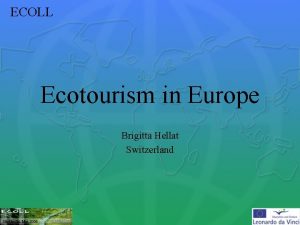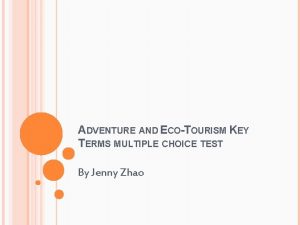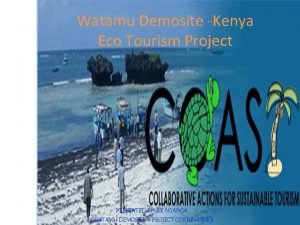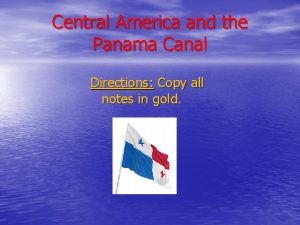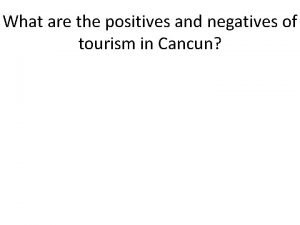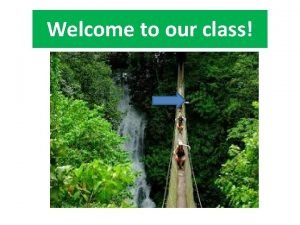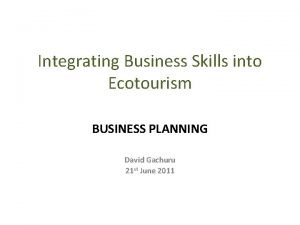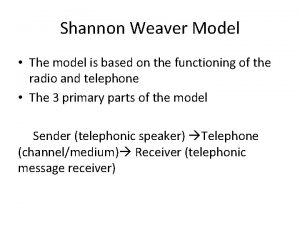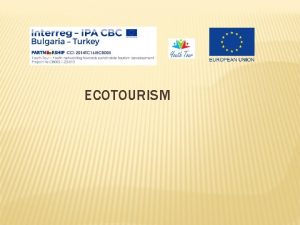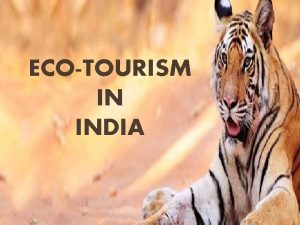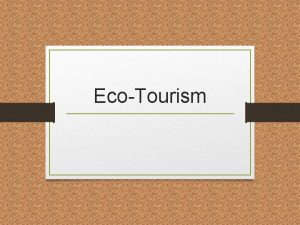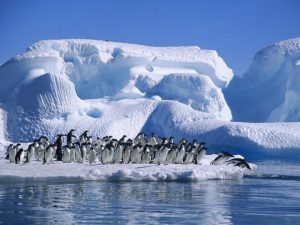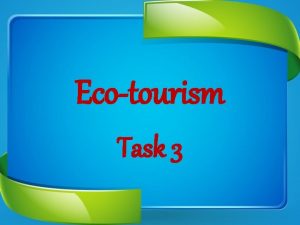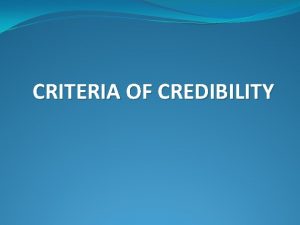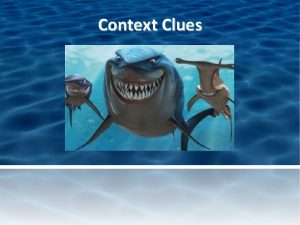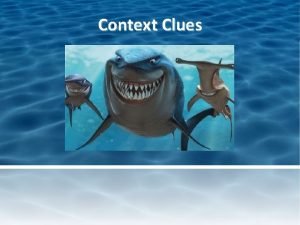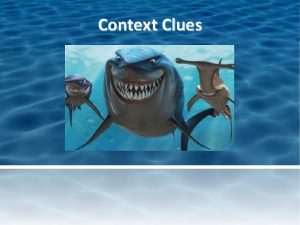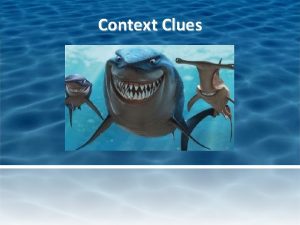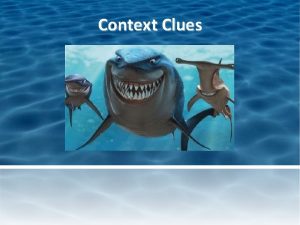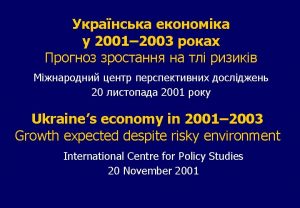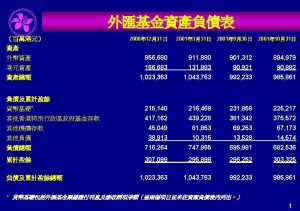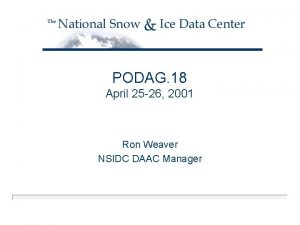Ecotourism Criteria and Context Weaver 2001 Ecotourism Who






















- Slides: 22

Ecotourism: Criteria and Context Weaver, 2001

Ecotourism – Who participates … ? – Where does it occur … ? – What impacts does it have … ? – How can it be managed … ? Weaver 2001 2

Emergence of Ecotourism • First emerged as a term in 1973 (ecotour) • Recognized from the start that the relationship between tourism and the natural environment tended to be one of conflict, but that the potential existed for a relationship based on mutual benefit Weaver 2001 3

Ecotourism is: “…tourism that consists in traveling to relatively undisturbed or uncontaminated natural areas with the specific objective of studying, admiring, and enjoying the scenery and its wild plants and animals, as well as any existing cultural manifestation found in these areas” (Ceballos. Lascurain) • What is the historical context within which ecotourism emerged? Weaver 2001 4

Mass tourism era (end of WWII) pro-tourism advocacy platform (1950 s – 1960 s) Cautionary platform (1970 s) Adaptancy platform (1980 s) / alternative tourism Knowledge-based platform (1990 s) Weaver 2001 5

Additional definitions… • Ecologically sustainable (non-damaging & contributing to protection and management) • Accepts nature – not transforming nature; appreciation not thrill-seeking/physical achievement • Improves the welfare of local people • Educational Weaver 2001 6

Ecotourism as tourism • • • 1. 2. 3. 4. Certain forms of travel Spatial component Time component Domestic excursionists Domestic stayovers International excursionists Weaver 2001 7

Charismatic megafauna – Ecotourist is interested in a certain rare species of flora or fauna than in the broader ecosystem in which it occurs – Examples? – Consequences? Implications? Weaver 2001 8

Cultural component • Why is this component included within the context of ecotourism? Weaver 2001 9

Education • Structured, assessed and non-assessed, learning opportunities • Informal structure … – Education/learning/appreciation differences become blurred -> is it still ecotourism? – Interest/involvement spectrum Weaver 2001 10

Sustainability • Brundtland report (1987): ‘development that meets the needs of the present without compromising the ability of future generations to meet their own needs’ • Agreement? Yes. Difficulty? Bigger yes. Weaver 2001 11

Why the difficulty in developing sustainable tourism? • Biocentric or anthropocentric? – Constant capital rule (one generation should leave a stock of capital assets to the next generation that is no less than the current stock) • Steady state sustainability (maintaining) and enhancement sustainability (environment experiences a net benefit) – Passive vs active ecotourism Weaver 2001 12

Why the difficulty in developing sustainable tourism? (continued) • Monitoring and implementation issues – Indicators – Benchmark and threshold values – Short term vs. long term – Influence of other activities (copper picture) – Time lag between cause and effect – Past trends not indicative of future developments Weaver 2001 13

Textbook (Weaver 2001) “Ecotourism is a form of tourism that fosters learning experiences and appreciation of the natural environment, or some component thereof, within its associated cultural context. It has the appearance (in concert with best practice) of being environmentally and socio-culturally sustainable, preferably in a way that enhances the natural and cultural resource base of the destination and promotes the viability of the operation. ” • What are the aspects in this definition? Weaver 2001 14

Ecotourism in the context of other tourism types • Nature-based tourism – Ecotourism is a subset of nature-based tourism – Non-ecotourism, nature-based tourism: • • • 3 S tourism (sea, sand, sun tourism) Adventure tourism Captive tourism Extractive tourism Some types of health tourism • None of the non eco-tourism nature based tourism sectors are constrained by the requirement to have a learning component or to have the appearance of sustainability Weaver 2001 15

Ecotourism in the context of other tourism types (continued) Ecotourism Cultural Tourism Weaver 2001 16

Ecotourism in the context of other tourism types (continued) Adventure Tourism Ecotourism Weaver 2001 17

Ecotourism in the context of other tourism types (continued) • Hybrids: – ACE tourism (Adventure tourism, Cultural tourism, Ecotourism) – NEAT (Nature-based, Ecotourism, Adventure Tourism) • 3 S (sea, sand, sun) tourism – No when w/ mass tourism; yes for some marine activities • Alternative tourism and mass tourism – Provided that there is adherence to the basic criteria, ecotourism could be part of mass tourism and part of alternative tourism Weaver 2001 18

Ecotourism in the context of other tourism types (continued) • Sustainable tourism – Ecotourism is a subset – Note: sustainable tourism can also encompass parts of mass and alternative tourism • Extractive and non-extractive tourism – Difference? Where is ecotourism? Weaver 2001 19

Sustainable tourism: world trends and challenges ahead Yunis, 2003

Progress in sustainable tourism • Need for a systematic planning approach now widely accepted • Also growing as a research topic • Increased adoption of voluntary initiatives (ecolabels, certification schemes, environmental awards…) • However: the level of actual application is still limited to a few market segments, a few destinations, and a few market operators Weaver 2001 21

Challenges … • Continued and unstoppable growth of tourism • Liberal attitude towards its management • Lebanon? – Mo. T: “Tourism in Lebanon will follow steady and stable growth estimated around 20 to 25% [in the next ten years]” Weaver 2001 22
 Weaver 2001
Weaver 2001 Presupposition triggers
Presupposition triggers The disadvantages of tourism
The disadvantages of tourism Nonagist
Nonagist Communicating across generational differences
Communicating across generational differences Paraverbal adalah
Paraverbal adalah Ecotourism vocabulary
Ecotourism vocabulary Ecotourism advantages
Ecotourism advantages Ecotourism ap human geography definition
Ecotourism ap human geography definition Ecotourism is one of the fastest
Ecotourism is one of the fastest Ecotourism in switzerland
Ecotourism in switzerland Multiple choice questions on sustainable tourism
Multiple choice questions on sustainable tourism Watamu community eco tourism
Watamu community eco tourism What is meant by ecotourism
What is meant by ecotourism Digestive system acrostic poem
Digestive system acrostic poem Negatives of ecotourism
Negatives of ecotourism Ecotourism can truly solve the problem of pollution
Ecotourism can truly solve the problem of pollution Ecotourism business plan
Ecotourism business plan 10 commandments of ecotourism
10 commandments of ecotourism Interactive model of communication pros
Interactive model of communication pros Anna y reed
Anna y reed Eli weaver human services
Eli weaver human services Shannon weaver model of communication
Shannon weaver model of communication
